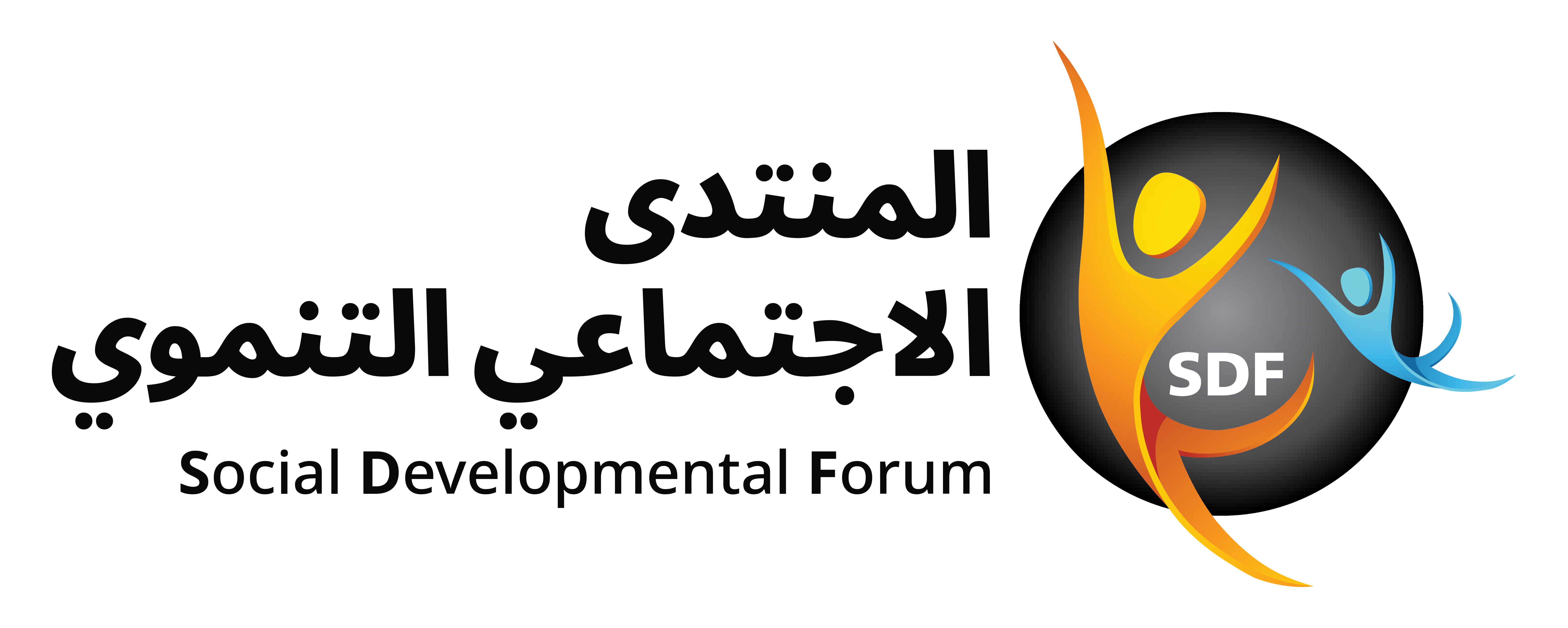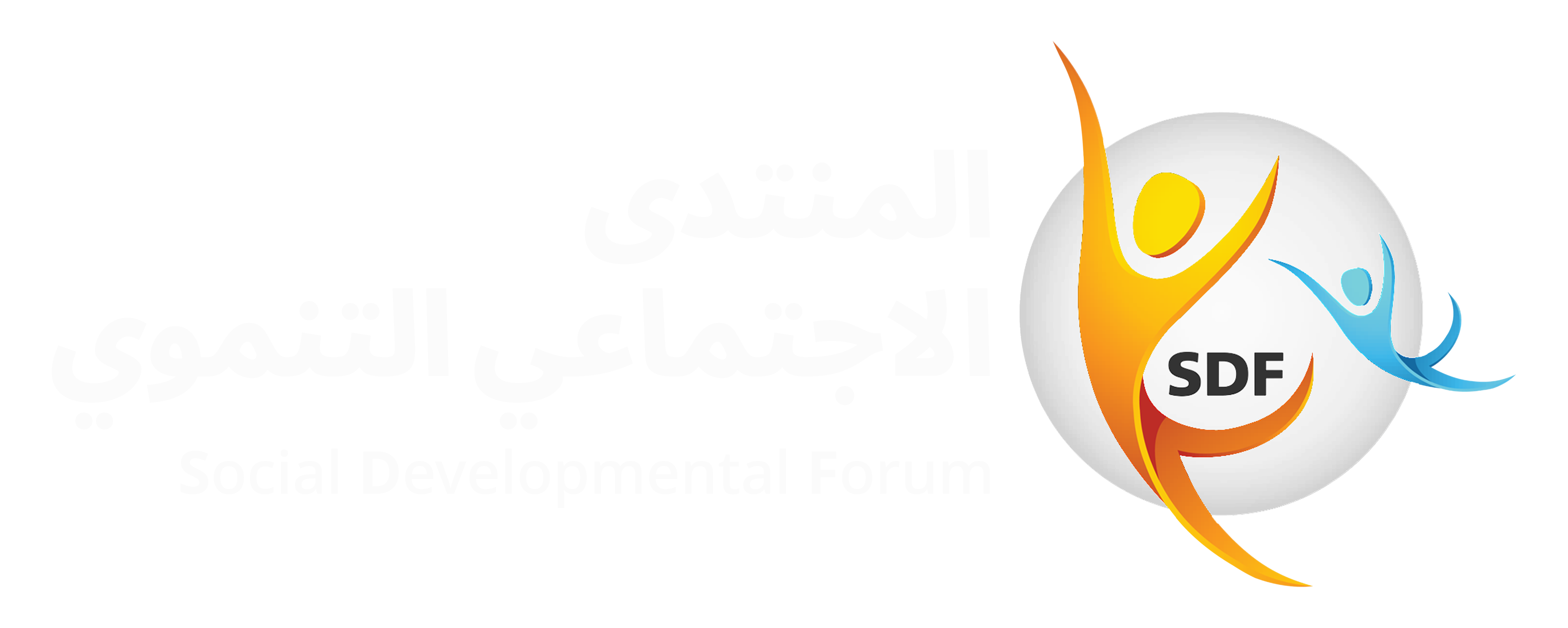Six Safe Learning Spaces (SLSs) for Adolescents and Children: SDF is determined to maintain hope!
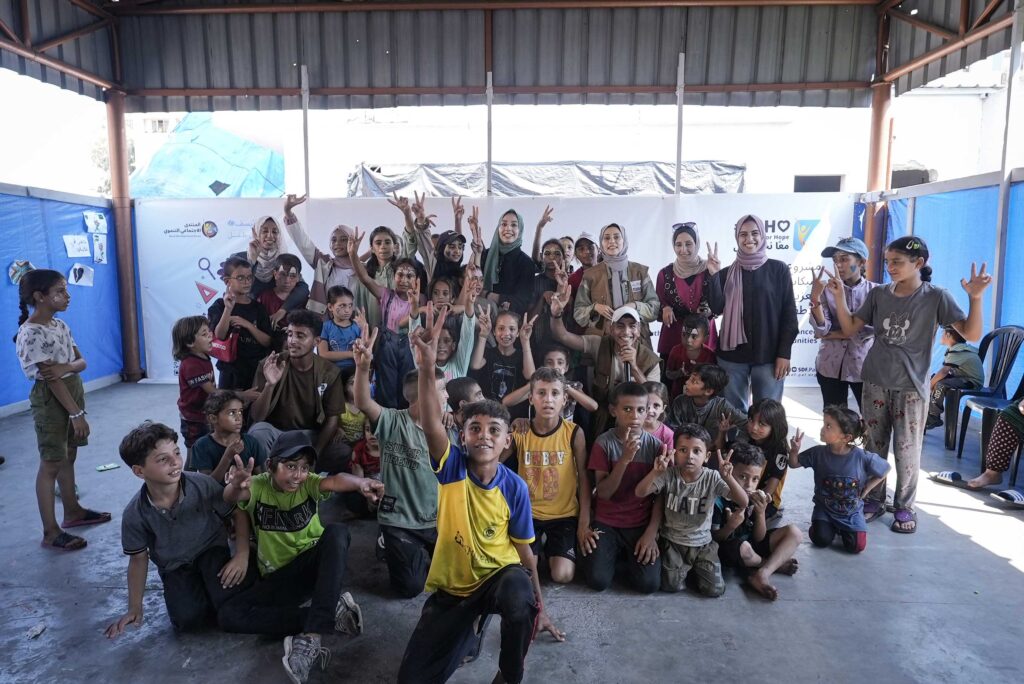
Through SDF’s youth network-led effort, we have successfully launched six Safe Learning Spaces (SLSs) across the Gaza Strip. This is a significant component of the project “Youth Networks Collaborating Towards Enhanced Educational and Well-being Opportunities for Children and Adolescents” implemented in partnership with UNICEF Palestine and the Youth Advisory Panel (YAP).
6 SLSs are segmented across three vital locations in southern, middle, and northern Gaza, with two spaces in each governorate, equipped with six teachers of Arabic, English, and mathematics who provide contextualized sessions to children and adolescents.
The project aims to enhance children and adolescents’ access to informal educational activities, raise awareness of violence and protection issues, and develop teaching and communication skills. Through establishing a mandated youth network, the project seeks to foster youth’s role in enhancing educational and recreational prospects for adolescents and children.
Children, Adolescents, and Youth
SLSs target children (09 – 13 years) and adolescents (14 – 17 years) aiming to enhance their well-being through recreational and educational sessions. The youth network (18 to 24 years) leads periodic peer-to-peer sessions and workshops to support this mission.
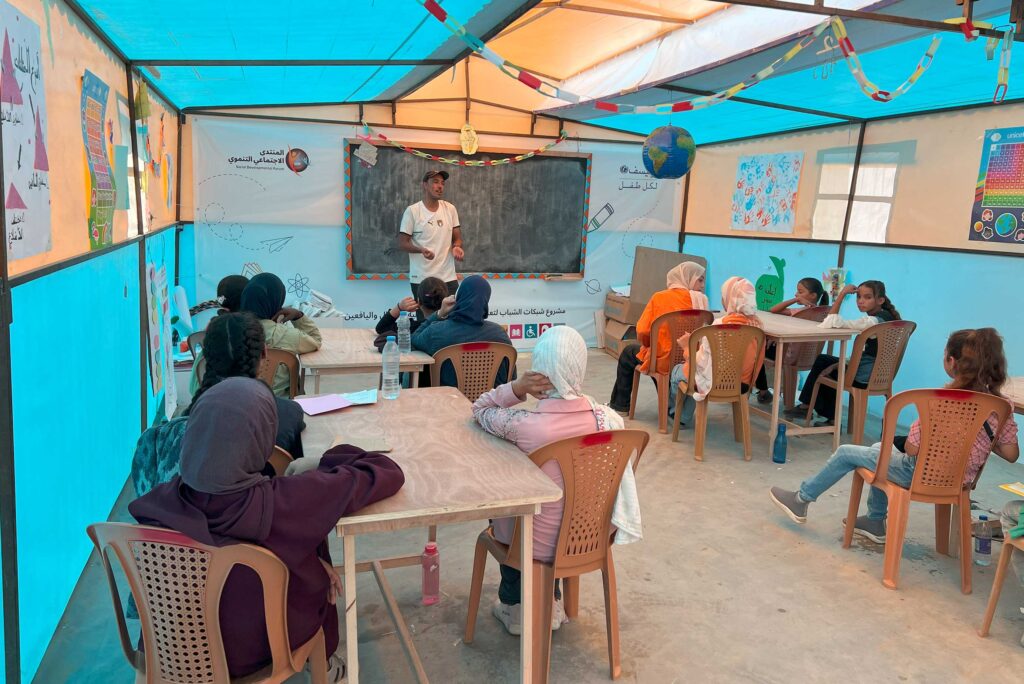
From North to South
SLSs are located within displacement camps and shelters across the Gaza Strip. For instance, inside Abd al-Rahman bin Auf and Palestine schools in North Gaza, in the Palestinian Red Crescent’s “Return Camp” and SDF’s “Together For Palestine 3” camp in the middle area, and at Al-Zoumi and the Jordanian-Kuwaiti Camps in Khan Younis, southern Gaza.
Escalated challenges and needs
Yet, SDF and partners at UNICEF and YAP were all determined to launch the educational activities in a sense of “normalcy and safety” within an interactive, vibrant atmosphere that looks like getting back to school to start a new academic year.
Hundreds of parents were eager to enroll their children. We encountered a critical challenge; some families prioritize securing basic needs, so they often pull their children away from classes to help fetch water or buy food. Yet, we addressed this by demonstrating the positive impact of children’s education on their families. Parents could notably recognize the skills and knowledge their children gain daily.
Abdel Hakim Awad, Social Developmental Forum, field coordinator
Amna Saud, an Arabic teacher at “Together For Palestine 3” camp, said: “Maintaining consistent attendance was a significant challenge, but we did our best to keep our students engaged.”
Amna noted that while teachers offer some structured learning, 70% of activities focus on interactive funny activities to alleviate the stress children have endured during ten months of war.
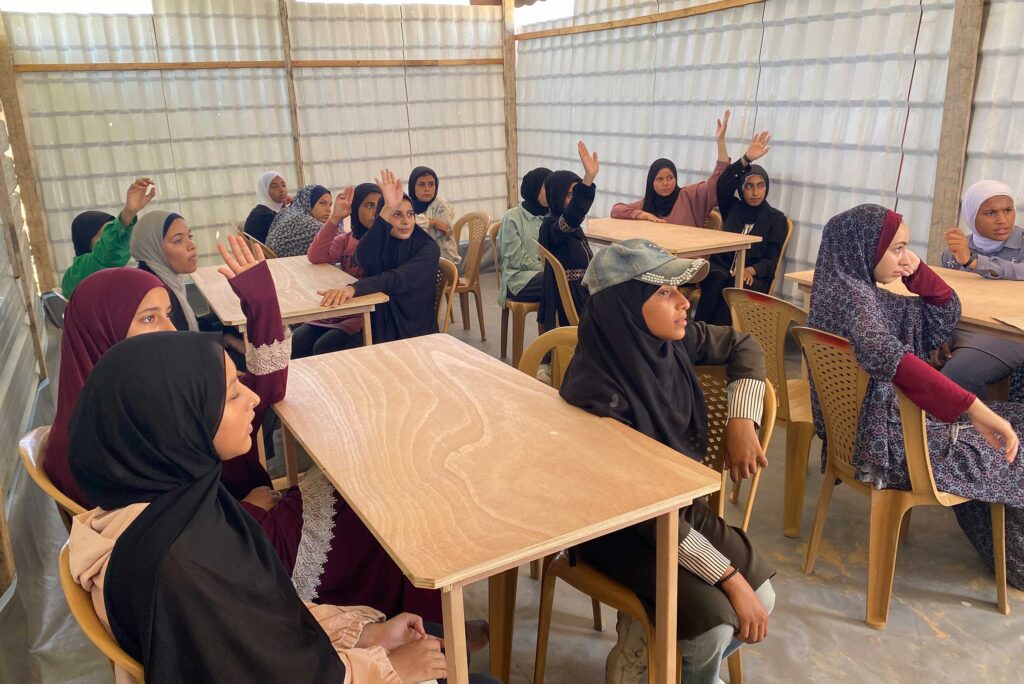
Intensive Training for a Qualified Teaching Staff:
The teachers received an intensive two-day training on active learning techniques, which they will devote to classes combining life skills and active learning to help students adapt to displacement realities.
The teaching staff developed a set of guiding materials, including learning cards for various age groups across academic grades 4 through 11; four cards per subject of Arabic, English, and mathematics.
The training aimed to equip teachers with essential active learning strategies, emphasizing both theoretical and practical applications.
Hamza Abu Eisha, Project Assistant and Educational Specialist, SDF
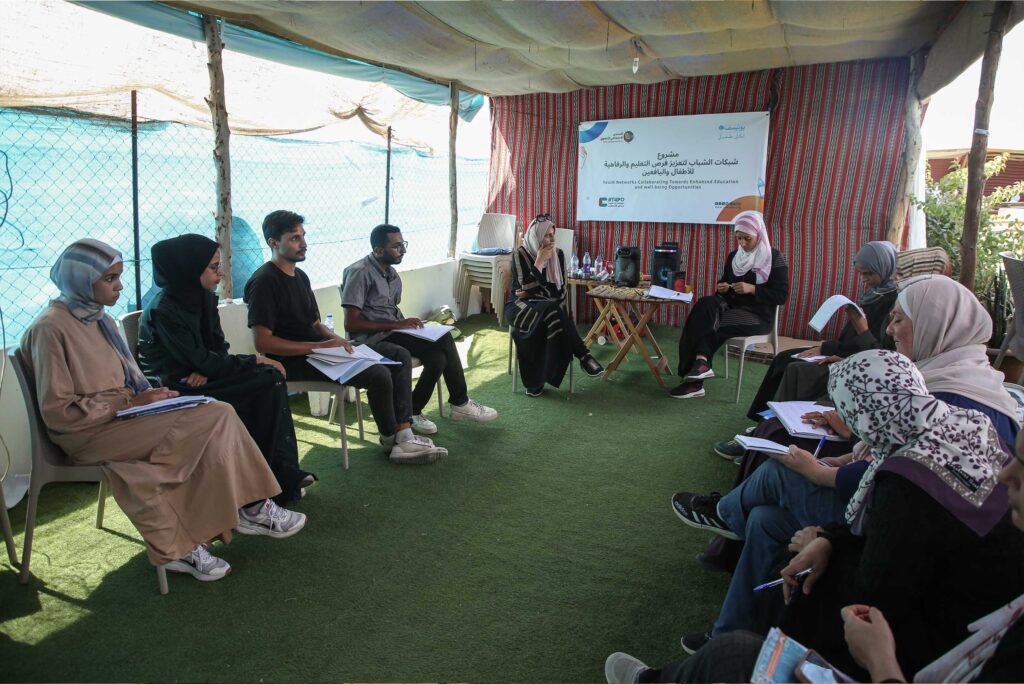
The training was incredibly insightful; it equipped me with new methods to engage students in learning activities. The sessions provided us with a range of tactics and activities that have positively backed our teaching experience.
Amna Saud, Teacher
The learning system in the SLSs offers three hours of learning per day, divided equally between academic learning and life skills. Through an interactive, youth-driven approach, the SLSs seek to reconnect children and adolescents in an educational atmosphere, aiming to bridge the gap caused by prolonged disruption of education due to the ongoing genocidal war since October 2023.
